The Circular Economy Platform Hungary has entered into partnership with the Holland Circular Hotspot
On November 28, 2019, a declaration of cooperation between the Hungarian Circular Economy Platform and the Holland Circular Hotspot was solemnly signed at the first Circular Economy Summit.
The Circular Economy Platform, which was established as an initiative of the Business Council for Sustainable Development in Hungary (BCSDH), the Embassy of the Kingdom of the Netherlands, and the Ministry of Innovation and Technology just a year ago, has taken an important step towards promoting the circular economy with this collaboration. Through this partnership it will be possible to get to know about the best international examples of circular economy initiatives and related knowledge and tools, to share domestic experiences, and to foster the shared work of governments in terms of disseminating good solutions for achieving EU goals. Along with the ceremonial signatories, another 80 companies and organizations have already joined the Platform.
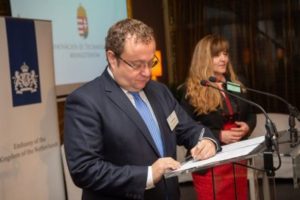 | 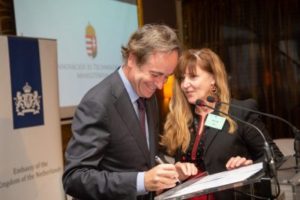 | 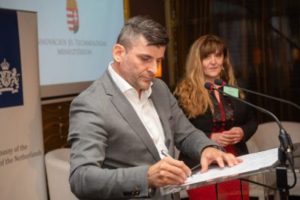 | 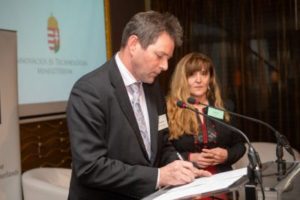 |
“I am proud that through cooperation with the Holland Circular Hotspot, we are gaining access to leading international know-how, which will help the Circular Economy Platform Hungary to put the circular economy on a more dynamic path in our country. With the involvement of business-, governmental- and scientific-, as well as professional and social organizations, we can achieve our goal: a sustainable economy” – said Attila Chikán Jr., President of BCSDH. “BCSDH and its partners play a prominent role in facilitating the paradigm shift and joint thinking, along with building a community of forward-thinking change leaders and sharing business solutions that make a real impact” – he added.
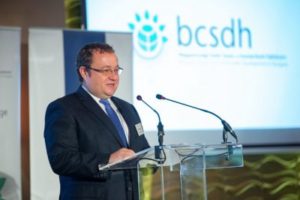
Transitioning to a circular economy is a great business opportunity today. The core of the concept is not yet deeply understood by most companies, although the use of this model can increase the resilience of the world economy and facilitate the achievement of the Paris Climate Change Agreement and the United Nations Sustainable Development Goals. The circular economy could generate business opportunities worth $ 4.5 billion worldwide by 2030.
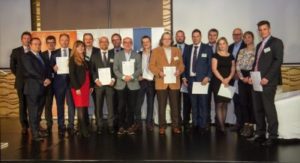
A survey undertaken by the Circular Economy Platform confirmed that, as of today, most companies still identify the circular economy with waste management. The need to share knowledge and to highlight good practices and business solutions was thus identified. The respondents themselves confirmed that collaboration, knowledge sharing, and governmental incentives are needed to start changing the present economic model and making up for lost ground.
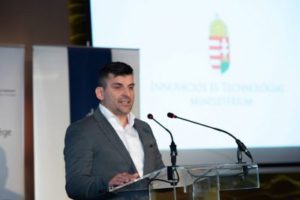
“The goals of the circular economy can only be achieved with the active involvement of stakeholders, which requires opportunity and interest. The Circular Economy Platform will play an important role in creating this opportunity by providing the right framework for the business-, government- and scientific sector to foster collaboration and knowledge-sharing. To create interest, we need to ensure the existence of conditions that help the economy to embark on this new path, while also raising interest in learning about and applying this new approach. The Ministry of Innovation and Technology has set the goal of understanding the interests of economic operators through legislation that is aligned with the goals of the circular economy. In addition, the ministry has provided grants worth 244 million forints to small- and medium-sized enterprises for projects that include creative and innovative ideas. These projects aim to prevent waste production or increase the reduction and recycling of waste, this way helping achieve the goals of the circular economy” – said Ferenc Hizó, Deputy State Secretary for Sustainable Development, in an opening speech that represented the Ministry of Innovation and Technology.
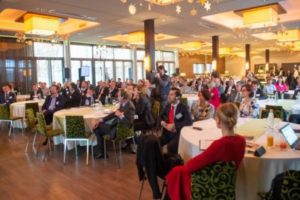
Copies of Material Matters, one of the foundational texts on the theme of the circular economy, were specially published for this event in English. One of the authors, Sabine RAU-OBERHUBER, who came to Hungary at the invitation of Embassy of the Netherlands, gave some insight into the book to participants.
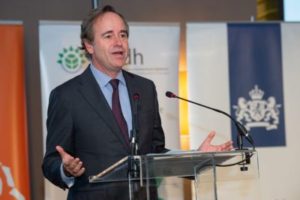
‘’If we want to provide clean water, food and shelter, decent work and well-being for nine billion citizens, as enshrined in the UN Sustainable Development Goals, then we need to act now by transitioning to a circular and sustainable economy to ensure we are not too late. Our embassy, as one of the founding members of the Hungarian Circular Economy Platform, supports the goals laid down in the Memorandum of Understanding that include, among others, sharing knowledge and best practices for closing the material loop’’ – highlighted René van Hell, Ambassador of the Netherlands in Hungary in his introduction.

“The circular economy is about rethinking how we use our raw materials and resources to create a sustainable economy free of waste and emissions. It means shifting from the current linear model of “take, make, waste” to an economy where we “reduce, reuse, recycle” – said Tibor Bodor, Country Manager, ING Bank N.V. Hungary Branch, who welcomed the new form of cooperation as the host of the conference.
****
Circular economy
According to the current so-called linear economic model, technical and biological components are extracted from nature, transformed, and are then disposed of without recycling.
In contrast, in the circular economic model metabolic processes are involved in a closed circle, waste is almost 100% recycled, and biological
Circular Economy Platform spornsors in 2019:
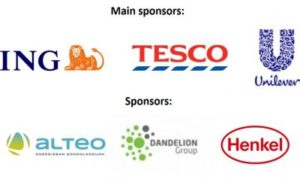




Leave a Reply
Want to join the discussion?Feel free to contribute!